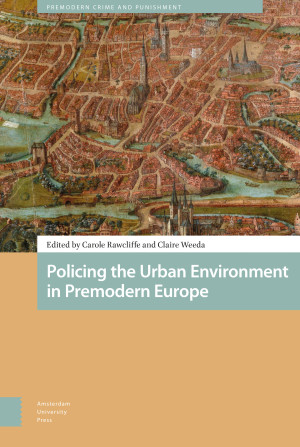"This excellent collection of essays addresses the enforcement of urban public health measures and sanitary regulations in premodern Europe. [...] In scope, the chapters cover much of Latin Christendom--Italy, France, the Low Countries, England, and the Holy Roman Empire--and focus primarily on the period from the twelfth through sixteenth centuries. This breadth of coverage serves to illuminate the many commonalities in sanitary measures, while individual case studies showcase local or regional particularities. The essays themselves are in English, but the bibliographies provide a valuable guide to primary sources and urban environmental scholarship across a variety of languages."
- Roberta Magnusson, The Medieval Review, 21.05.11 (2021)
"This interesting collection considers how urban polities across Europe in the premodern era managed concerns with urban hygiene, public health, and environmental protections. As the title suggests, legislative measures that were encoded in statute legislation in some cities from as early as the twelfth century showed significant concern for maintenance of the built environment, enforced through the appointment of officials whose remit became more specialized over time. A close relationship is revealed between statute rules that appear to have a primary function in the beautification or improvement of the urban fabric but do so through measures that improved sanitation and sought to reduce the transmission of disease."
- Fabrizio Nevola, Renaissance Quarterly, Vol. LXXIV, No. 4 (2021)
"This collection of essays not only provides new insights but also provokes important questions. In addition, the rich bibliographies following each chapter and the useful index will undoubtedly help to advance our knowledge of this much-neglected but, not surprisingly, very 'live' topic of research."
- Marc Boone, Speculum, Vol. 97, No. 3 (2022)

